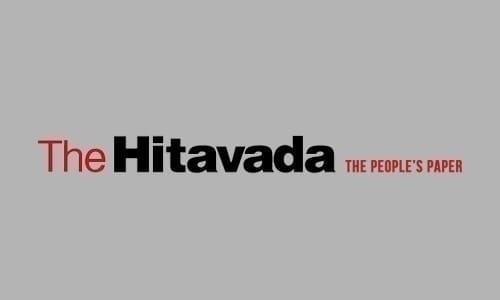Stop Genocide
| Date :28-Jan-2024 |

By Annie Domini
THE much-awaited order from the International Court of Justice (ICJ) at The Hague in the case of genocide by the State of Israel against the Palestinian people in the Gaza Strip, brought before the World Court by the Republic of South Africa, came out on 26 January 2024 and it’s crystal clear: Tel Aviv must stop its genocide of the Palestinians immediately.
The court, in a set of near unanimous decisions from 17 judges, including two ad-hoc ones each from Israel and South Africa (by 15-2, and/or 16-1 majority decisions) instructed Israel to adhere to its obligations under the ‘Convention on the Prevention and Punishment of the Crime of Genocide.’ The Hague asked Tel Aviv to stop the killing of Palestinians, stop inflicting serious bodily or mental harm to members of the group, stop “deliberately inflicting on the group conditions of life calculated to bring about its physical destruction in whole or in part”; stop “imposing measures intended to prevent births within the group”, among other provisional measures.
While some pro-Palestinian activists both within the besieged Gaza Strip as well as in the world at large expressed disappointment that the ICJ stopped short of explicitly calling for a cease-fire, which the Gazans have been demanding for almost four months now, international human rights lawyers explained that the matter before the court pertained to acknowledgement and prevention of genocide, which the court has lived up to.
Moreover, important Palestinian voices have underscored that cease-fire involves two equally capable warring parties, while in this case, it’s Israel’s indiscriminate massacre of Palestinians, numbering at over 25,700 being killed, 60,000 wounded and 2 million displaced, that’s under the scanner.
Not only did the ICJ acknowledge that the South African appeal had incredible merit, it refused to accept a single legal argument from the paltry Israeli defence, which relied on blaming the ongoing decimation of Palestinian lives, children, men and women included, on the attack by the Hamas militant group on October 7 of 2023. It must be noted that Holocaust historians, including reputed Israeli ones such as Norman Finkelstein, Ilan Pappe, Raz Segal, Avi Shlaim, as well as psychologist Gabor Maté, have variously described the October 7 attack by the Hamas as a “slave revolt”, “cry of desperation”, “a prison break”, among other metaphors, underlining the 75 years of Palestinian trauma since the Nakba of 1948, in which over 7,00,000 Palestinians were expelled from their homes in what suddenly was declared by the Anglo-Saxon world as the State of Israel, a homeland for the Jews.
While it was beyond the pale of the current ICJ hearing, the decades-long occupation of Palestine existed as an
unstated but inferred subtext of The Hague’s provisional order on the humanitarian catastrophe imposed by Tel Aviv
via its incessant brutalization of the Gazans.
That it’s also carrying out indiscriminate killings, abduction and destruction of property in West Bank and East Jerusalem is a matter that will surely be taken up at a later point, now that Israel is officially under trial for carrying out genocide in Gaza.
Importantly, the court noted that the “Palestinians appeared to constitute a distinct ‘national, ethnical, racial or religious group’, and hence a protected group within the meaning of Article II of the Genocide Convention”. It quoted various UN bodies, such as the UNRWA, WHO, OCHA, among others, that have documented the massacre and misery, including the decimation of healthcare services and access to basic medical care via the targeted destruction of each one of Gaza’s 36 hospitals, all of its universities, media offices, etc., in a frenzy of systematic
extermination of the Palestinian way of life.
In order to establish genocidal intent via rhetoric, the ICJ quoted the President of Israel, Issac Herzog, its defence minister Yoav Gallant and the energy minister Israel Katz, whose words, flaunted on public forums such as X (formerly Twitter), TV channels etc., reeked of assumed imperial, settler-colonial impunity.
The ICJ also took note of a press release of 16 November 2023, issued by 37 Special Rapporteurs, Independent Experts and members of the Working Groups part of the Special Procedures of the United Nations Human Rights Council, in which they voiced alarm over ‘discernibly genocidal and dehumanising rhetoric coming from senior Israeli Government officials’.
The ICJ in its order on provisional measures to be taken by Israel with immediate effect has asked it to ensure that its military does not commit any bodily or mental harm to the members of the Palestinian ethnic group in the besieged Gaza Strip, to prevent and punish the direct and public incitement to commit genocide of Palestinians, to enable access to basic services and humanitarian assistance, to prevent any destruction of evidence related to the allegations under Genocide Convention levelled against it, and to report back in a month to the ICJ on how it has adhered to the provisional orders.
India’s Judge Dalveer Bhandari, in addition to fully supporting the majority order by the ICJ that read out the provisional measures asked of Israel, also included an extra two-page note that ended by emphasising that all hostilities must end with immediate effect and the remaining hostages with either side should be released unconditionally.
This is as close to calling for a cease-fire as a world court can possibly come to, given it’s bound by the scope of
the dispute it’s adjudicating at present.
Ironically, Israel’s response to the ICJ ruling has been one of utter denial and dismissal, claiming that the ICJ has not asked for a cease-fire, therefore there’s no need for it to stop its militarism in Gaza. In addition, the United States, Israel’s chief supporter in the world stage, has tried to equivocate its way out of the definitive ICJ ruling, as has Canada led by Justin Trudeau, while France and Germany have (reluctantly?)said they would respect and abide by the ICJ order.
